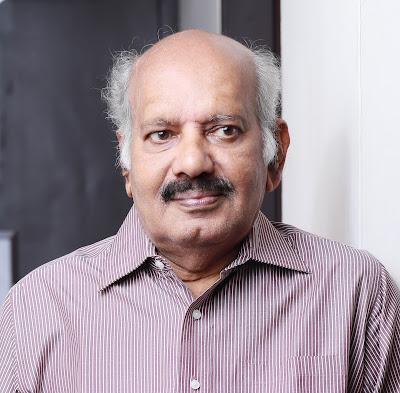Malayalam
author Sethu’s first novel in English, ‘The Cuckoo’s Nest’ is
about a house for helpless girls run by a former nun
By
Shevlin Sebastian
One
of the surprises when you pick up ‘The Cuckoo’s Nest’ by author
Sethu, his first English novel, is the foreword. It is written by
none other than Sr. Jesme, who wrote the best-seling 'Amen', the life
of a nun in Kerala. But then it no longer becomes a surprise when you
realise one of the main characters is Madam Agatha, a former nun who
runs a home for troubled girls from all over the country.
But
Sethu clarifies that he had not read Sr. Jesme’s ‘Amen’ when he
wrote the book, which has been published by Niyogi Books. However, he
was aware of the troubles faced by her and other nuns in their daily
life because of the widespread coverage in the media. “Maybe, the
impact was unconscious,” he says. However, Sethu received a
compliment when Sr. Jesme called him up, after reading the novel and
said, “This is my story.”
In
the foreword Sr. Jesme writes, ‘Sethu has imbibed the nuances of a
woman’s mind who has left the convent life and is to be commended
for creating a character like Madam Agatha. She has transformed
herself from a religious entity into a secular personality.”
This
is true. Because, very early in the novel, Agatha says, “This is
not an orphanage run by the mothers or a madhom run by the swamis. I
had never asked you about your religion or caste, Neither did I
listen to your private prayers to find out your religion. Your
prayers are nothing but your attempt for a private communication with
the Almighty.”
She
also told the inmates that there should be no loud prayers or
chanting of bhajans of any community in the open hall. If one wanted
they could do so privately in their room, without disturbing the
peace of others. This would be a secular space and only those who
believe in secularism and tolerance should join.
And
Sethu had a specific reason to focus on these subjects. “It is to
highlight the situation the country is going through,” he says.
“This is my first socio-political novel.”
At
the ‘Cuckoo’s Nest’, there is a procession of girls from all
over India, like Sabeena, Parveen Singh, and Ranjini, who are
suffering from various psychological issues and running away to get
some mental peace.
Asked
why he attempted a novel in English, Sethu says, “It was an
adventure or you can call it a misadventure.”
What
is interesting to know is that Sethu studied in a Malayalam-medium
school in the village of Chendamangalam. “I did not learn English
properly,” he says. “What I know is acquired English. When I was
writing ‘The Cuckoo’s Nest’, over six months, I often consulted
the dictionary as well as a thesaurus.”
Many
of the characters are composites. What helped was that thanks to his
more than four-decade-long working career Sethu has worked in
Maharashtra, Tamil Nadu, Punjab, Madhya Pradesh, Delhi, Andhra
Pradesh and Karnataka. And during his career, Sethu has met a wide
variety of people. “I am also comfortable with the languages and
cultures of these places,” says Sethu, who retired in 2005 as
chairman and managing director of the South Indian Bank.
The
reviews from readers have been positive. Says Moumita Roy: “The
story idea is unique and fresh. The character of Madam Agatha is well
researched. The scenario of the plot is relatable with current India.
The story has been narrated nicely. I enjoyed reading it.”
And
Sethu is also enjoying his 55th year as a writer. He has published 35
novels and short story collections. Among the many prizes he has won
is the Kendra Sahitya Akademi Award, the Kerala Sahitya Akademi Award
as well as the Vayalar Award. “It has been a long journey,” says
the 78-year-old with a smile.
(The
New Indian Express, Kochi and Thiruvananthapuram)


No comments:
Post a Comment